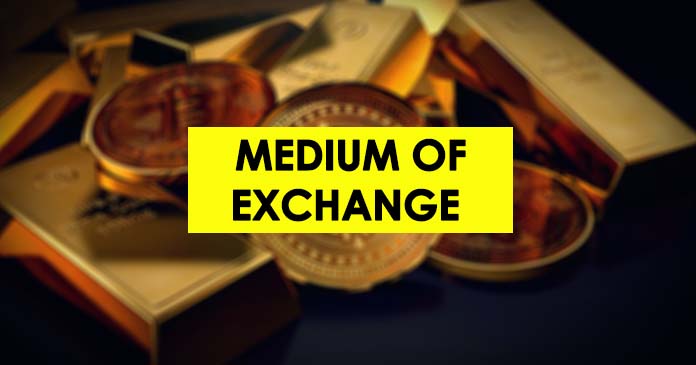A medium of exchange is a type of currency that allows people to exchange products and services without bartering. In other terms, a medium of exchange serves as a “go-between,” allowing people to swap one thing for another without directly exchanging products or services.
For example, if someone wants to purchase a car but has no other vehicles to trade in exchange, they can use a payment method like cash to buy the vehicle from the seller.
There are various types of media of exchange, including physical currency, electronic cash, and money based on commodities. Overall, the medium of exchange is an important component of any economy since it allows individuals to sell and exchange products and services without engaging in direct bartering.
Types of medium of exchange
There are several types of mediums of exchange, including:
- Physical currency (coins, notes)
- Electronic currency (digital cash, cryptocurrency)
- Commodity-based currency (gold, silver)
Physical currency
Physical currency refers to coins and notes that are used as a medium of exchange. Governments issue and control physical currency. In most nations, it is commonly used as a form of exchange. Physical currency has the advantage of being durable and easy to carry, but it can also be subject to counterfeiting and loss.
Electronic currency
Electronic currency, commonly referred to as digital cash or e-money, is a category of money that only exists digitally. A computer or mobile device can hold electronic cash, which can then be transferred electronically between parties. Although using electronic cash is convenient and simple, it is also vulnerable to security issues, including fraud and hacking.
Commodity-based currency
A commodity-based currency is one that is backed by a physical commodity, such as gold or silver. In the past, commodity-based currency was more prevalent; however, it is less so now. Commodity-based currencies can change in value depending on the market price of the underlying commodity.
Overall, each medium of exchange has advantages and disadvantages, and which to use may be chosen by factors such as convenience, security, and market conditions.
Money As a Medium of Exchange
Modern economies use money widely as a form of medium of exchange. Governments issue and regulate money, which is a standardized type of cash recognized as a medium of exchange for goods and services. Usually, money comes in the form of coins and bills, though several nations have also started experimenting with electronic money.
Money as a medium of exchange allows for more efficient trade. People can trade goods and services without worrying about finding someone with exactly what they need in exchange for the item they are selling, reducing the need for direct bartering. Any economy needs money because it makes it easier for everyone to trade and exchange goods and services.
The evolution of medium of exchange
| Period | Type of medium of exchange |
| Prehistoric times | Bartering |
| Ancient civilizations | Commodity-based currency (e.g. gold, silver) |
| Modern times | Physical currency (coins, notes) and electronic currency (digital cash, cryptocurrency) |
People engaged in bartering in prehistoric times, which was the direct exchange of products and services without the use of a medium of exchange. This can be inefficient because it requires people to find someone who has exactly what they want in exchange for the item they are selling.
Commodity-based money, including gold and silver, started to be used as a means of exchange in ancient civilizations. The benefit of commodity-based currency is that it is widely used and has a generally stable value. However, it can be difficult to transport, and its value might change depending on the market for the underlying commodity.
In modern times, physical currency, such as coins and notes, and electronic currency, such as digital cash and cryptocurrency, have become widely used as mediums of exchange.
Advantages and disadvantages of each type of medium of exchange
| Type of Medium of Exchange | Advantages | Disadvantages |
| Physical currency (coins, notes) | Widely accepted, easy to use | Inconvenient to transport, subject to theft or loss |
| Electronic currency (digital cash, cryptocurrency) | Convenient, secure | May not be widely accepted, subject to fluctuating values and technical issues |
| Commodity-based currency (gold, silver) | Widely accepted, stable value | Inconvenient to transport, subject to fluctuations in value based on the market for the underlying commodity |
In conclusion, each type of medium of exchange has benefits and drawbacks, and the best choice may depend on the specifics and demands of the parties. Some factors to consider are convenience, safety, and market conditions.
Further Reading
Functions of Money | Top 4 Discussed


